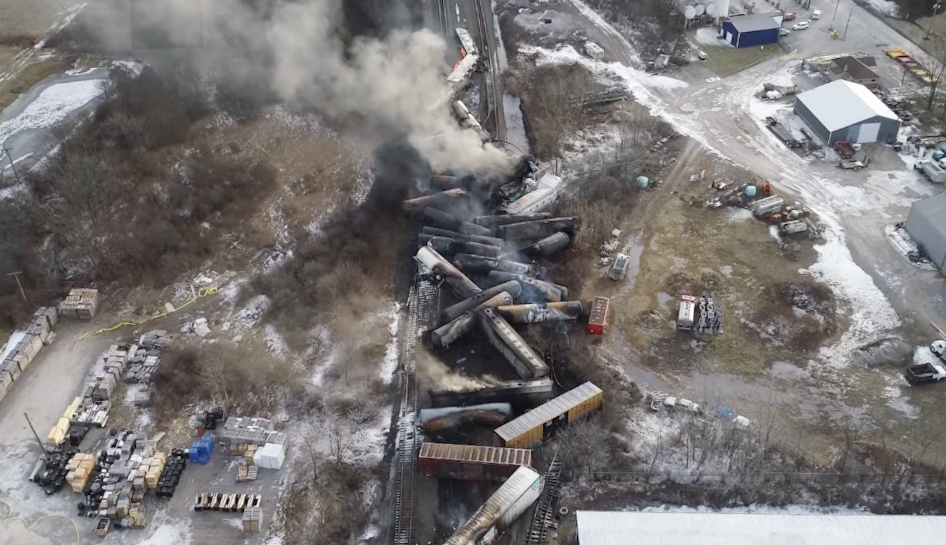Trump's Cheap Oil Policy: Praising The Industry While Prioritizing Low Prices

Table of Contents
Boosting Domestic Oil Production: An Energy Independence Strategy
Trump's administration pursued a strategy of energy independence, heavily emphasizing increased domestic oil production. This involved several key policy changes:
Increased Drilling and Production on Federal Lands:
The administration significantly eased restrictions on oil and gas drilling on federal lands. This resulted in:
- A substantial increase in the number of drilling permits issued.
- A notable rise in oil and gas production from federal lands, contributing to overall domestic output.
- Significant economic benefits, including job creation in the energy sector and increased government revenue from royalties and taxes.
- However, this expansion also fueled environmental concerns, including habitat destruction and increased greenhouse gas emissions. The impact on local communities, particularly those near drilling sites, also became a significant point of contention.
Relaxation of Environmental Regulations:
The Trump administration rolled back numerous environmental regulations impacting the oil and gas industry. These included:
- Easing restrictions on methane emissions, a potent greenhouse gas.
- Weakening regulations on water pollution from fracking operations.
- Reducing oversight of pipeline construction and safety.
While these rollbacks lowered production costs for oil companies, they also triggered substantial environmental concerns and raised questions about potential health risks for nearby communities. Critics argued the administration prioritized short-term economic gains over long-term environmental protection. The debate over the cost-benefit analysis of these regulatory changes remains highly contentious.
Support for the Oil and Gas Industry:
The Trump administration consistently voiced strong support for the oil and gas industry, demonstrated by:
- Rhetoric emphasizing the importance of the sector to the US economy.
- Tax breaks and subsidies designed to incentivize investment and production.
- Appointment of industry representatives to key positions within government agencies.
This support stemmed partly from a desire to appeal to a key segment of the electorate, and partly from a belief that a strong domestic oil industry was crucial for national security and economic prosperity.
Prioritizing Low Oil Prices: Consumer Benefits and Global Implications
A key component of Trump's energy policy was the implicit goal of maintaining relatively low oil prices. This had both positive and negative consequences.
Impact on Consumer Prices:
The increase in domestic oil production, coupled with global market dynamics, did contribute to relatively lower gasoline prices during parts of the Trump administration. This resulted in:
- Lower transportation costs for consumers.
- Increased disposable income for households, potentially stimulating consumer spending.
- However, the correlation between increased production and lower prices wasn't always direct, and fluctuations in global markets continued to influence prices significantly.
Global Market Dynamics:
Trump's policy significantly impacted global oil markets, leading to:
- Increased competition for oil-producing nations, including OPEC members.
- Potential shifts in geopolitical alliances and relationships.
- Concerns about the long-term stability of oil prices and the potential for price volatility.
Criticism of Low Price Policy:
Prioritizing low oil prices drew considerable criticism, with arguments that:
- Undervaluing domestic energy resources discouraged long-term investment in the industry.
- Low prices could harm the profitability of oil companies, leading to reduced investment in exploration and production.
- A focus solely on low prices neglected the broader implications of energy policy for environmental sustainability and national security.
The Long-Term Sustainability of Trump's Cheap Oil Policy
The long-term viability of Trump's approach to oil remains highly questionable, due to several significant factors:
Environmental Concerns:
Increased oil production and relaxed environmental regulations contributed to:
- Higher greenhouse gas emissions, exacerbating climate change.
- Increased risks of oil spills and other environmental disasters.
- Long-term damage to ecosystems and biodiversity.
Economic Sustainability:
A heavy reliance on cheap oil created economic vulnerabilities:
- Increased dependence on fluctuating global markets, making the economy susceptible to price shocks.
- Potential long-term job losses in the oil industry due to market instability and technological shifts towards renewable energy.
- A missed opportunity to invest in a more diversified and sustainable energy portfolio.
Geopolitical Ramifications:
Trump's policy had significant geopolitical implications:
- Strained relationships with some oil-producing nations.
- Potential for increased competition and instability in global energy markets.
- Questions regarding the long-term security of the US energy supply.
Conclusion: Assessing the Legacy of Trump's Cheap Oil Policy
Trump's approach to oil involved a complex interplay between supporting the domestic oil industry and maintaining low prices for consumers. While it yielded some short-term economic benefits, including increased domestic production and lower gasoline prices, it also raised significant concerns about environmental sustainability, economic stability, and geopolitical implications. The legacy of "Trump's cheap oil policy" is ultimately a mixed one, marked by both successes and substantial drawbacks. Further research is crucial to understanding the long-term impacts of such policies, particularly the need for a balanced approach that considers environmental and economic factors in tandem. We need informed discussions and effective strategies to move towards a sustainable energy future, one that doesn't rely solely on the pursuit of "cheap oil." Explore further resources on energy policy and its complex impact to fully grasp the challenges we face.

Featured Posts
-
 Months Of Toxic Chemical Exposure The Ohio Train Derailments Lingering Impact On Buildings
May 12, 2025
Months Of Toxic Chemical Exposure The Ohio Train Derailments Lingering Impact On Buildings
May 12, 2025 -
 Cineplexs Q1 Financial Report Highlights Drop In Theatre Attendance
May 12, 2025
Cineplexs Q1 Financial Report Highlights Drop In Theatre Attendance
May 12, 2025 -
 El Laicismo Uruguayo Reflejado En Su Semana De Turismo Origen E Impacto Social
May 12, 2025
El Laicismo Uruguayo Reflejado En Su Semana De Turismo Origen E Impacto Social
May 12, 2025 -
 Mc Ilroy Lowry Team Six Behind In Zurich Classic Title Hunt
May 12, 2025
Mc Ilroy Lowry Team Six Behind In Zurich Classic Title Hunt
May 12, 2025 -
 Bayern Munich L Astuce De Thomas Mueller Face A Un Journaliste
May 12, 2025
Bayern Munich L Astuce De Thomas Mueller Face A Un Journaliste
May 12, 2025
